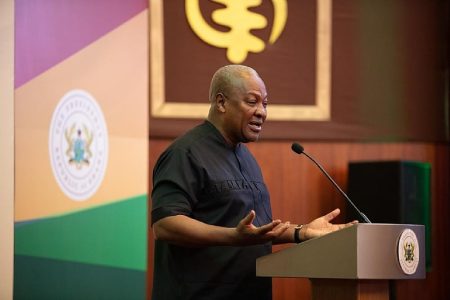Nollywood, the vibrant Nigerian film industry, stands at a critical juncture, grappling with the tension between global influences and the preservation of its unique African identity. Veteran actor Segun Arinze has voiced his concerns about the increasing Westernization of Nollywood narratives, arguing that the industry risks losing its authenticity in its pursuit of broader appeal. While acknowledging the positive impact of globalization and technological advancements on the industry’s growth, Arinze warns against the wholesale adoption of Western storytelling conventions at the expense of traditional African narratives and cultural representations. He contends that the pervasive influence of social media and increased exposure to international cinema have subtly shifted the focus of Nollywood filmmakers, leading to a gradual erosion of the very elements that once distinguished the industry on the global stage.
Arinze’s critique centers on the observation that Nollywood stories are becoming “slightly distorted,” moving away from the authentic portrayal of African experiences and cultural nuances. He laments the tendency of some filmmakers to prioritize emulating Western styles over showcasing the richness and diversity of African traditions. This shift, he argues, is not merely a matter of aesthetic preference but a significant cultural concern. By mimicking Western narratives, Nollywood risks losing its distinctive voice and becoming a pale imitation of Hollywood, sacrificing the unique perspectives and stories that initially captivated audiences worldwide. The very essence of Nollywood, its ability to reflect the realities and complexities of African life, is being jeopardized by this growing homogenization.
The veteran actor highlights the symbolic example of traditional African marriage ceremonies being increasingly replaced by Western-style white weddings, both in real life and on screen. This seemingly innocuous trend reflects a broader cultural shift where African traditions are being supplanted by Western practices. In Nollywood, this manifests in the adoption of Western narrative structures, character archetypes, and thematic concerns. While embracing certain technical and storytelling advancements from other cinematic traditions can be beneficial, Arinze emphasizes the importance of retaining the core values and cultural authenticity that define Nollywood. The industry’s strength lies in its ability to tell stories that resonate with African audiences and offer the world a glimpse into the continent’s rich cultural tapestry.
The concern raised by Segun Arinze is not about isolating Nollywood from global influences. Rather, it is a call for a more discerning approach to integrating external elements while safeguarding the industry’s cultural heritage. He advocates for a conscious effort to strike a balance between embracing innovation and preserving the distinct identity that has made Nollywood a global phenomenon. The industry’s future success, he believes, hinges on its ability to retain its African roots while evolving and adapting to the changing landscape of the film world. This requires a commitment to telling authentic African stories that reflect the continent’s diverse cultures, languages, and experiences.
The challenge for Nollywood filmmakers is to resist the allure of simply replicating Western formulas and instead focus on crafting narratives that are rooted in African realities and sensibilities. This involves not only showcasing traditional customs and practices but also exploring contemporary African issues through an authentic lens. Nollywood has the potential to be a powerful platform for sharing diverse African perspectives with the world, promoting cross-cultural understanding, and challenging stereotypical representations of the continent. By prioritizing authentic storytelling, Nollywood can solidify its position as a leading voice in global cinema, offering a unique and valuable contribution to the world’s cultural landscape.
Ultimately, the debate surrounding the Westernization of Nollywood highlights a broader tension between globalization and cultural preservation. As the world becomes increasingly interconnected, it is crucial for cultural industries like Nollywood to navigate this complex landscape with intentionality. The industry must find a way to engage with global trends without sacrificing its unique identity. By embracing its African heritage and prioritizing authentic storytelling, Nollywood can continue to captivate audiences worldwide while preserving the rich cultural legacy that has made it such a vibrant and influential force in the world of cinema. The future of Nollywood depends on its ability to strike this delicate balance and forge a path that honors both its global aspirations and its African roots.














